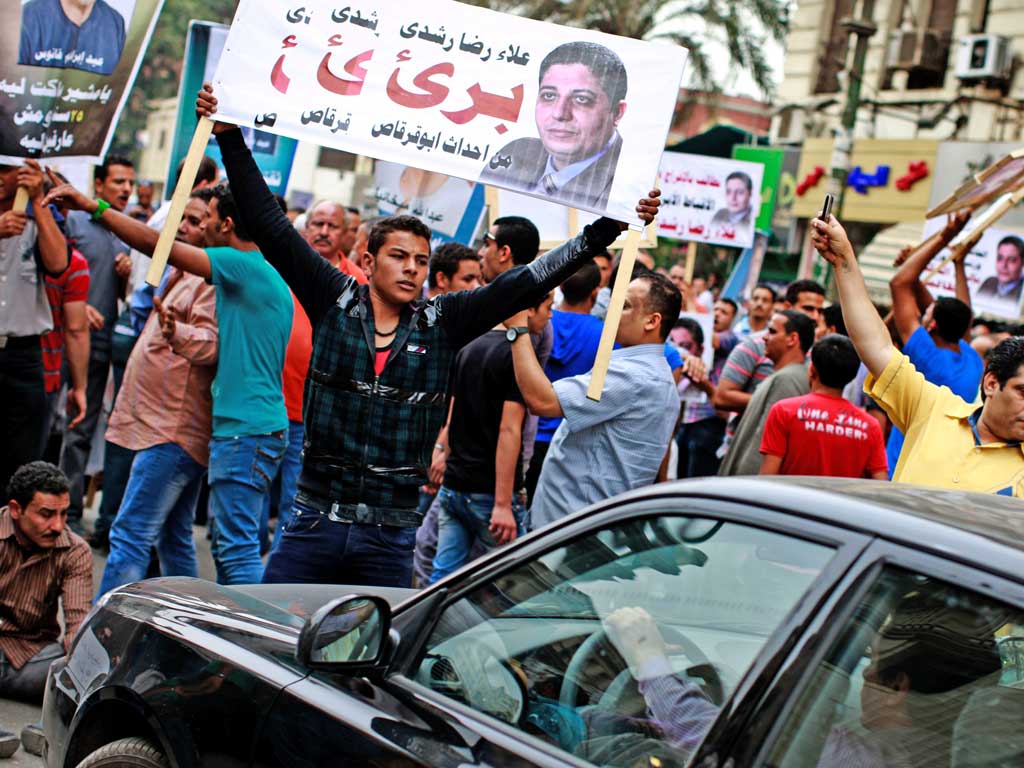Egypt's pro-democracy activists fear run-off vote
Protest groups left to wonder if struggle to overthrow Mubarak has backfired on them

Your support helps us to tell the story
From reproductive rights to climate change to Big Tech, The Independent is on the ground when the story is developing. Whether it's investigating the financials of Elon Musk's pro-Trump PAC or producing our latest documentary, 'The A Word', which shines a light on the American women fighting for reproductive rights, we know how important it is to parse out the facts from the messaging.
At such a critical moment in US history, we need reporters on the ground. Your donation allows us to keep sending journalists to speak to both sides of the story.
The Independent is trusted by Americans across the entire political spectrum. And unlike many other quality news outlets, we choose not to lock Americans out of our reporting and analysis with paywalls. We believe quality journalism should be available to everyone, paid for by those who can afford it.
Your support makes all the difference.The shock and bewilderment following Egypt's unexpected preliminary presidential election result has triggered recriminations among the liberal activists who helped topple Hosni Mubarak last year.
Many of the protesters, who saw preferred candidates such as the left-wing activist Hamdeen Sabahi pushed out of the running, are openly questioning whether the months of gritty street politics which convulsed Egypt last year might have backfired.
Unofficial results suggest next month's presidential run-off will pit the Muslim Brotherhood's Mohamed Morsi against Ahmed Shafik, a former air force chief who is widely viewed as the ruling military council's de facto candidate.
Analysts suggested Mr Shafik was catapulted into second place by voters tired of the eekly demonstrations and a rise in crime after Mr Mubarak's fall.
It has left some activists wondering whether they made a disastrous miscalculation by getting lured into repeated bouts of violence by the military and security forces. "We didn't get our message across to the normal citizens," said Mona Dadeir, a member of the April 6 youth movement that helped spearhead protests last year. "They blame us because they lost their sense of security."
Shereen al-Touny, an activist who co-founded a NGO to monitor parliamentary elections, said she understood why voters had grown weary.
"I am a revolutionary. I went to the streets for all the marches and sit-ins. But I am tired," she said. "If I am saying I'm tired, can you imagine what someone sitting on their couch at home is saying?"
Official election results will be announced this week, but many activists are horrified at the prospect of voting for either of the current run-off candidates. "Ahmed Shafik will hang us if he wins," Amal Sharaf, a leading member of April 6, said.
There is also a belief that again, when it really mattered, the liberal opposition was hopelessly divided. If other so-called "revolutionary" candidates had stepped down, they argue, Mr Sabahi could have won.
"That was a historical mistake," Shady el-Ghazaly Harb, a founding member of a leading youth coalition, said. Activists are calling for more anti-Shafik protests in Cairo tomorrow.
In a separate development, one of Mr Mubarak's closest aides was jailed for seven years and fined $6m (£3.8m) for corruption.
A Cairo court convicted Zakaria Azmi of using his position to illegally make $7m (£4.5m).
Join our commenting forum
Join thought-provoking conversations, follow other Independent readers and see their replies
Comments